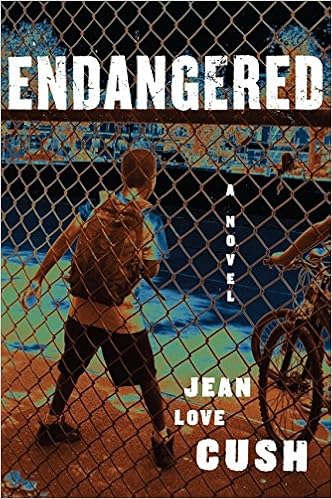Let's start first with some basics of thesis writing. According to a basic definition of the concept of thesis, it is a "statement or theory that is put forward as a premise to be maintained or proved." But we really want to take this a step further. According to Marcie Sims, a colleague of mine. in her textbook, THE WRITE STUFF, she notes that a thesis statement "establishes a narrowed scope of your topic, provides at least one controlling idea or analytical purpose."
But you still might be questioning why a writer would put a thesis statement into his or her essay. You will note that in no way am I saying you would actually put a thesis statement in the essay. You should, however, know why you are writing the story and what you want the readers to leave with when they finish your novel. Marcie goes on to note that even in narrative writing, you would have a purpose to your story. In fact, the definition of narration in her book is a story that provides insight or truth gained from the experience.
Too often, writers just simply write, but without that controlling purpose or goal, the story ends up being pretty flat. This is very apparent when editors and agents discuss a prospective novel or read a submission from a new author. When the author just tells us the plot of the story and we are left with this question of "So what?" that is generally a story without a purpose.
Taking this a step further, we can see that having a thesis in your mind, both before you write the story and as you write it, will actually tie all of the events in your book together. It will give each scene your write and each passage of dialogue you have a meaning. The elements in your story should have some sort of meaning that advances the reader closer to that ultimate insight you want them at when they finish the book.
If we look at Jean Love-Cush's novel ENDANGERED we can see how the author has done just this. For those of you who are not familiar with this book, it is clearly one that needs to be read during these tough times here in the United States. Let me give you the "blurb" about the book from Amazon:
An innocent black teenager is accused of murder in this provocative and compassionate thriller that skillfully probes issues of race, class, crime, and injustice and offers a searing portrait of modern America.
From the time her son, Malik, could walk, Janae taught him that the best way to stay alive and out of trouble with the law was to cooperate. Terrified for his safety, she warned him, “raise your hands high, keep your mouth shut, and do whatever they say,” if the police ever stopped him. But when a wave of murders hits Philadelphia and fifteen-year-old Malik is arrested, Janae’s terror is compounded by guilt and doubt: Would Malik have escaped jail if he’d run?
Unable to see her son or pay for his defense, Janae, a cafeteria worker, reluctantly allows Roger Whitford, a white human rights attorney, to represent Malik. With the help of an ambitious private attorney named Calvin Moore, Roger is determined to challenge the entire criminal justice system and expose its inherent racism—racism that threatens the very existence of America’s young black men.
Offering a startling and unprecedented defense, the lawyers spark a national firestorm of debate over race, prison, and politics that burns to the very core of Janae herself. As she battles to save her son, she begins to discover that she is also fighting for her own survival and that of her community.
This author knows exactly the message she wants the readers to leave with. She wants those readers to leave questioning their own beliefs but to also be motivated to become socially and politically aware of the things going on around them. For this reason, each and every scene in the book paints a picture of this unfortunate circumstance and then has a moment to allow the reader some introspection. She does not come right out and "preach" to the reader, or say things such as, "This is what you should believe," but through the narrative, this is implied.
Knowing that thesis will also add to your marketing of the book when you are trying to show the uniqueness of the story. What is it that makes this book stand out? Why do we want to read it? Without that purpose and that thesis, you will struggle to come up with anything other than a generic writing trope such as "this is a coming of age story" or "this is a story about lost love found again."
So, what is your thesis? Do you have one? If so, does everything in your story link to that thesis? If not, this may be the reason why your story is going no where fast!

No comments:
Post a Comment